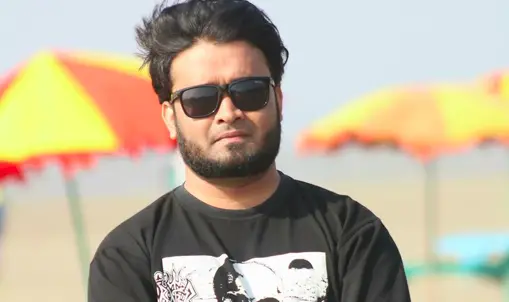Music has historically been a means to which youth-culture defined its identity. Underground music, in particular, has served to unite hordes of nascent young people in search of self-actualization.
Few music subcultures are more close-knit and dedicated than the underground, extreme metal scene. Birthed in the U.K., metal has always been a global phenomenon. However, in recent years, the internet has connected musicians, fans and distribution companies. As a result, these connections have helped the scene grow internationally.
YouTube and Spotify have given musicians across the globe the ability to share their music with large audiences; metal fans are some of the most receptive to foreign music. This open-minded attitude has allowed extreme metal to flourish in unexpected areas outside Europe and America. Additionally, the Middle East has become a fresh new breeding ground for some of the heaviest music in the world to grow.
At times, metal musicians have faced opposition in the Middle East because of strict, theocratic government systems. Some bands have spoken out against oppressive religious regimes, such as Saudi Arabian black metal band, Al Namrood. Yet, because of strict laws, the metal movement is slow to flourish in these areas.
However, more progressive South-East Asian countries, such as Indonesia and Bangladesh, have seen a massive rise in the popularity of extreme metal. Bangladesh, in particular, has developed a thriving underground scene that’s gaining international notoriety due in part to the success of bands like Orator and Eternal Armageddon.
The bulk of the credit for helping the Bengali underground metal scene grow should be given to the public relations and organizing of a few die-hard fans. Zoheb Mahmud and Safwan Hossain were vital components to these efforts, especially with the creation of the underground e-zine Venustas Diabolicus and the start-up of Qabar PR and Primitive Invocation. These efforts transformed Bangladeshi metal from a local phenomenon into a globally respected movement.
In my quest to discover more about the underground metal scene in Bangladesh, I sought out university student Safwan Hossain. Hossain is truly extraordinary in that he has been one of the main booking agents for extreme metal in Bangladesh. Despite the country not having had any foreign bands tour in the country yet, Hossain has united local musicians in Bangladesh and helped create the thriving underground culture the country knows today.
Hossain does all this while attending college at the University of Liberal Arts in Bangladesh as a business and marketing major. Hossain is proof that passion gives you the drive to succeed in any venture in your life, even if you have to lose sleep. I spoke with him about his interest in underground music, his various projects and some of the barriers he has encountered in his booking efforts.
Tabitha Prisinzano: First of all, tell me about how you got involved in the Dhaka extreme metal scene.
Safwan Hossain: Well, I found out about Iron Maiden from a cousin. That’s how I got into metal initially. Over time, I got into the underground scene which led to my involvement with Venustas Diabolicus zine.
The metal community is close-knit out here and we all kind of know each other. Later, I worked as a crew member for Primitive Invocation and Maximum Noise. Besides writing and organizing gigs, I do artwork and logos for bands.
TP: Iron Maiden is a lot of people’s first introduction to the metal genre. Was there any other thing that might have led to your passion for extreme metal?
SH: Well, yes. I was pretty active on a few underground meetup forums. People would post about upcoming events and shows — it was cool. I got a lot of great music recommendations and met a ton of cool people.
TP: Has your business education at all helped you in your underground metal and PR efforts?
SH: Yes, I have applied various marketing and communication strategies to my booking efforts and it has made organizing gigs lot easier. Basic market research techniques I learned about in college have really helped me to scout out the underground industry, so yes, I have found my education to be helpful.
TP: Tell me more about the zine and the radio station.
SH: Venustas Diabolicus started back in Dec. 2013. The idea was to focus primarily on extreme, underground, black metal bands from around the globe. Its founders, Asif Abrar and Zoheb Mahmud started this vile venture and have been plugging away at it ever since. Later on, Syed Imran Zaki and I joined. The pack continued to grow when Farhan Muhtasim and Shane Bermingham were added.
Metal Messiah Radio was established in Jan. 2008. It is a 24/7 internationally accessible Internet radio station specialized in airing rock and metal music; it was really fun working with them. Unfortunately, I couldn’t continue with them long-term due to study and job pressure.
TP: What do you believe makes the Bengali underground scene different than others around the world?
SH: Well, it’s a bit more challenging for us to bring the scene here. You may find underground bands that have a half million fan base locally, but few of these bands ever made their mark outside the country.
Even now, with all the effort we put in with the zine and the radio station, no major international bands have played here thus far. In the last few years, local underground bands have been trying to reach outside media, though. It’s great to see bands make a big impact in a short amount of time.
We still don’t have Paypal available in our country. So yeah, it can be pretty complex to transfer money or purchase merchandise from outside labels and distribution companies. The tax rate is high if someone wants to purchase an instrument from outside Bangladesh. It makes things complicated, to say the least.
TP: Have you run into any barriers in booking bands because of the government in Bangladesh?
SH: So far, no. We have become more cautious after a few incidents. Even in local gigs, organizers arrange strong securities and permission from police for gigs to ensure safety. But apart from some unprofessional moves by a few organizers, we are doing pretty well organizing gigs here.
TP: How do you think the fact that Bangladesh is a Muslim majority country affects the metal scene in Dhaka?
SH: Honestly, we didn’t face any problems in the underground scene because the country is majority Muslim. More powerful Muslim leaders are unaware of what we do in the underground; that’s actually a good thing!
TP: What are your plans moving forward as far as the metal scene is concerned?
SH: We try to keep the metal scene here as DIY as possible. Things are much better than they used to be.
Bands are more interested in making originals than just playing covers. Tons of musicians are writing and composing original songs and albums, leaving their mark on metal internationally. It’s all really exciting.
The groundbreaking change happened when Primitive Invocation introduced “old-school” bands of our scene. It all started back in 2011. People’s taste in metal music has changed a lot since then.
I’m making efforts to recruit more organizers for organizing gigs professionally. It would help if distribution companies found a way to use Paypal outside of the country and more bands produced original tracks rather than mimicking sounds from other bands.
Originality stands out from mimicry. But I do what I can to support the scene and will continue to do so.

















